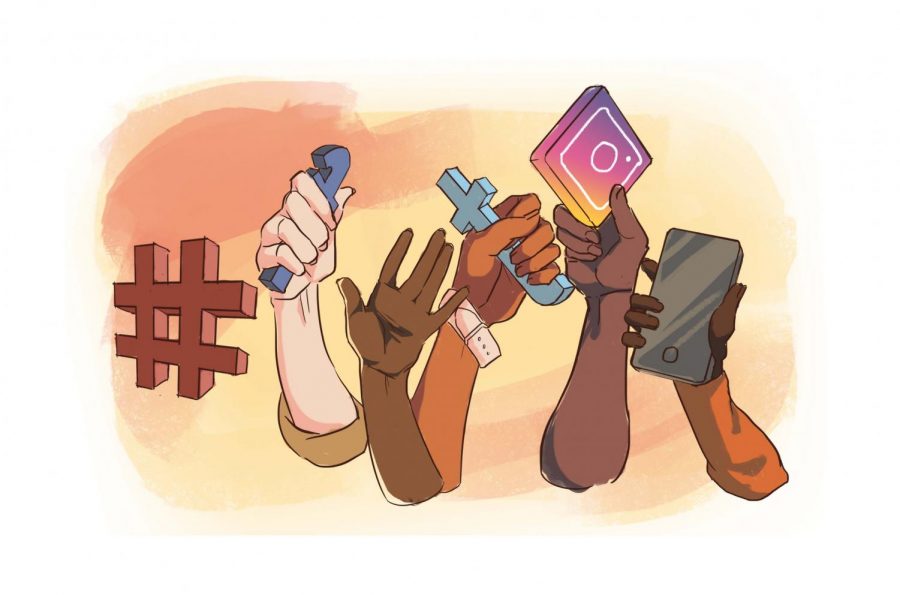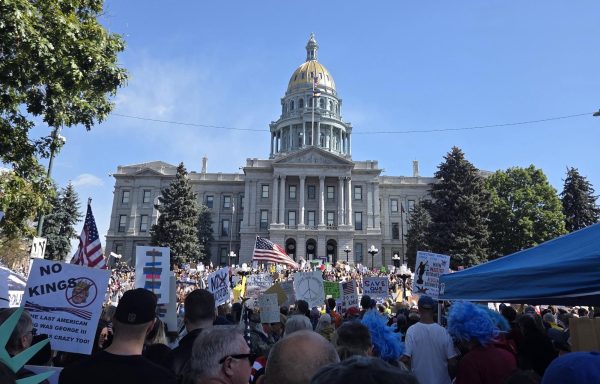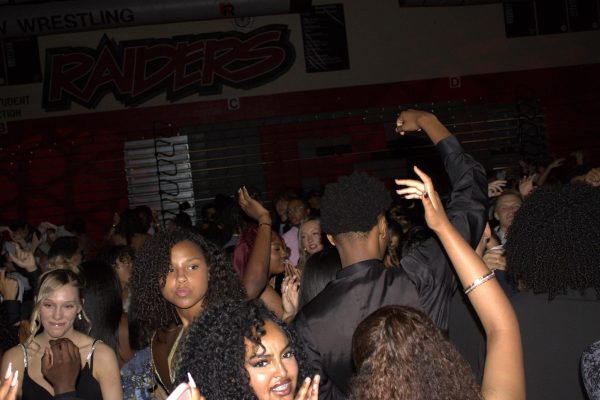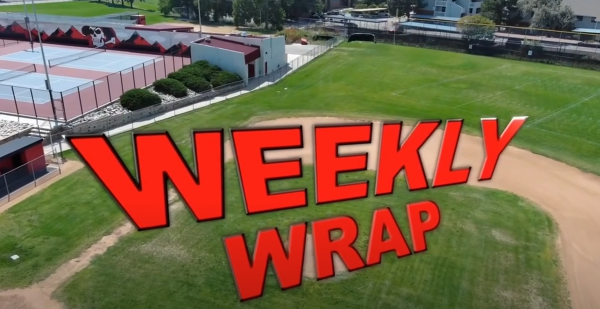Opinion: Gen Z’s Activism Revolution
September 17, 2020
Can we change the world?
I’ve never been one for cliches or cheesy quotes. No matter how sweet they are, they’re just empty words designed to give people motivation and encouragement. If they succeed in that, great! I have nothing against the inspirational phrases themselves, but oftentimes these sanguine words aren’t followed by action, reasoning, or some other form of corroboration.
I intended to take a more hypocritical route with this article and bash my generation for all of its flaws, but I quickly realized that many unique aspects of this cohort are not only positive, but extraordinary.
So allow me to shed off this severely censorious attitude and show you how Generation Z has the ability to make hopeful cliches a reality.
Generation Z were born between the late 1990s and the early 2010s.
We were once on track to inherit a relatively strong economy, but with the way Covid-19 has changed the political, social, and economic landscape of the United States, we may be facing a rather uncertain future.
It’s difficult to peg Generation Z, as we are a complex group of people and our influence seems to grow every year. With the youngest members at around eight years old, there’s still much that’s unknown about our generation. One thing has become clear about us; we are revolutionizing activism.
This claim does not go unchallenged; Generation Z are digital natives and we rely heavily on technology. Despite the numerous positive outcomes of this, many have ridiculed us for it.
“We get called lazy and get seen as kids that are only good at using their phones,” said Senior and Vice President of the Social Justice Club, Wendy Avelar, adding that the opinions of the youth are invalidated and belittled.
Stephanie Walsh, who teaches Sociology, American Government, Comparative Politics, State and Local Government, Civics, and sponsors the social justice club at Rangeview, explains that every older generation thinks that way of a younger one, but there is a difference, “Gen. Z wants change, the older generations want the status quo, that is actually being lazy.”
While generations before us have laid the groundwork, Gen Z has brought activism to a platform that we’re most familiar with: the internet. Although we may be young, we’re at the forefront of this massive platform. In a social media on “Covid and quarantine steroids” kind of world where conflicts are actually decided, we’ve been quick to challenge many stereotypes and norms of society and this passion has translated into an outpour of advocating for important issues, putting us in the prime position to lead change.
Now more than ever, social media feeds and timelines are flooded with political content and worldly news. But some have begged the question, “Does it do more harm than good?”
Slacktivism:
The term, “Slacktivism” was coined in the 1990s and it carries a negative connotation. It’s defined by Cambridge Dictionary as, “activity that uses the internet to support political or social causes in a way that does not need much effort.”
However, slacktivism can take on many different forms and depending on how we go about this, it doesn’t have to be the pejorative term it was designed as.

In the past few months, the media has been flooded with hashtags such as #BlackLivesMatter, #DefundThePolice, #SayTheirNames and so much more. Posts that range from an explanation of various sociological concepts to the rights of a protestor have been relentlessly shared.
While some complain that all of these posts are clogging up their feed, that is precisely the point. This “disruption” of your usual mindless scrolling, tiktok watching, selfie taking routine isn’t to exasperate you. It’s to shift your attention onto the pressing matters in our current climate. These “low effort” actions help to capture the attention of others and bring awareness to significant topics.
There is an ugly side to slacktivism. Through these simple actions, one gives off the impression that they are “informed” and that they “care” about the topic, but that might not be the true case. Maybe it was posting a black square on Blackout Tuesday but never saying another word on the issue. Perhaps it’s liking pictures of a protest and leaving a comment with the clapping hands emoji, but then resuming your scrolling without a second thought.
“Activism is not a trend that you would see on tiktok or instagram,” said Sophomore Mhalet Siyoum, adding that nothing is gained from this type of slacktivism and that it’s practically a mockery of real efforts.
However, it is up to us whether we will fall prey to the ugly side of slacktivism, or if we will efficiently use the resources shared with us and hold ourselves accountable.
“Social media can be both negative and positive when it comes to activism. It honestly depends on who is using it and how they are using it,” stated Siyoum.
I’ve already expressed my distaste for cliches, but with great power comes great responsibility. It is indisputable that social media has radically simplified how we relay information to large groups and drastically changed how we stay updated. It is our own responsibility to utilize the great power that is social media in the most effective way possible.
Raising Awareness and Protesting
Social media allows us “to see a reality that has been entirely visible to some people and invisible to others,” says Omar Wasow, a Princeton professor and co-founder of the social networking app BlackPlanet, in an interview with New York Times.
Wasow continues by drawing a parallel between the circulation of the George Floyd video online and images of Bloody Sunday in Selma in 1965, “As those injustices become visible, meaningful change follows.”
Of course, these injustices don’t cease to exist once people become aware of them. However, as these issues become visible, public opinion can change dramatically, in turn leading to change.
The well known March For Our Lives rally took place on March 24, 2018. With more than 880 sibling events across the globe and roughly 2 million participants in the United States alone, it was planned and led by, you guessed it: students.
Social media played a key role in the organization of these large protests, relaying information in a quick and accessible manner. The hashtag, #MarchForOurLives, has been used over 3.6 million times.
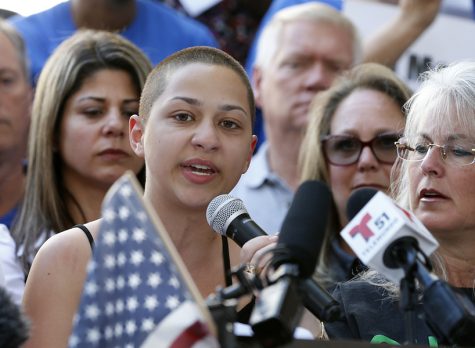
Emma González, a survivor of the Marjory Stoneman Douglas High School shooting in Parkland, Florida, called out Donald Trump and the NRA at an anti-gun rally that was held days after the shooting. She and her peers later condemned lawmakers and the NRA once again at a CNN town hall on gun violence.
All of these efforts were reflected in a Gallup poll that was published a month after the Parkland shooting, showing that the U.S. preference for stricter gun laws was at its highest since 1993. 67% of Americans said that laws around firearm sales should be stricter, compared to the 51% in 2008In the year following the shooting, numerous gun control laws were passed in different states.
Another quality that social media possesses is the ability to draw more people towards a cause at an exponential rate. As the support of a movement increases, the rate at which it grows increases as well. This momentum often inspires others to speak up.
On September 20, 2019, student activists from all over the world skipped school, as part of a Global Climate Strike. What began as anger towards the slow and ineffective response towards the daunting threat of climate change, turned into millions of students protesting as the UN prepared for its Climate Action Summit.

The figurehead of all this is a name that you’ve probably heard before: Greta Thunberg. Only 16 at the time, Thunberg made global headlines as she sailed to New York across the Atlantic on an emission-free sailboat, and gave a powerful message to world leaders at the UN Climate Action Summit. Her speech went viral on social media and it was the March For Our Lives campaign that inspired Thunberg to start her weekly climate strikes.
While some denounced the actions by students everywhere, António Guterres, the Secretary-General of the United Nations, published his approval of them, “These schoolchildren have grasped something that seems to elude many of their elders: we are in a race for our lives, and we are losing… My generation has failed to respond properly to the dramatic challenge of climate change. This is deeply felt by young people. No wonder they are angry.”
We have a long way to go, the protests are just the beginning of it. We must be cautious to avoid falling into the treachery of bandwagon activism to ensure that our social media isn’t just a facade. But do not think for even a moment, that it is all insignificant or won’t matter in the grand scheme of things. Every hashtag, every retweet, every rally, every chant, is an essential step on the path to change. As long as we don’t stop there and continue to walk this path, going beyond this step, we will reach our destination.
If you wish to refute this, then you are part of the issue. Why doubt and ridicule these actions when you can work to effectively utilize these grand yet simple resources and hold yourself accountable to go beyond?
At the helm of this revolutionized activism is us: students, young adults, generation Z.
We can change the world.
